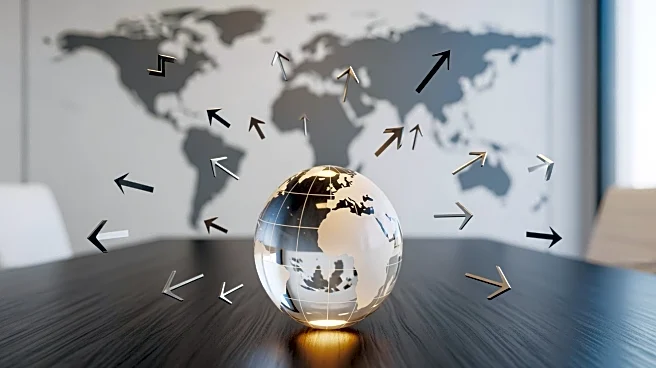Rapid Read • 7 min read
The Group of Seven (G7) is an informal forum comprising Italy, Canada, France, Germany, Japan, the United Kingdom, and the United States, with the European Union participating. Established in response to the 1973 energy crisis, the G7 has evolved from a platform for economic cooperation to a venue addressing broader global issues. The G7 expanded to include Russia in 1998, forming the G8, but reverted to the G7 format in 2014 following Russia's annexation of Crimea. The G7 is united by common values, playing a significant role in promoting freedom, democracy, and human rights.
AD
The G7's influence in international affairs is significant, as it represents the world's largest developed economies. Its focus on upholding democratic values and human rights is crucial in a global context marked by geopolitical tensions and challenges to democratic norms. The G7's decisions can impact global economic policies, security strategies, and diplomatic relations, affecting both member and non-member countries. The forum's ability to address complex issues collaboratively is vital for maintaining stability and promoting international cooperation.
The G7 will continue to address pressing global issues, including economic recovery, climate change, and international security. As geopolitical tensions persist, particularly with Russia and China, the G7's role in fostering dialogue and cooperation will be critical. Future summits may focus on enhancing collective action and addressing internal divisions to strengthen the group's effectiveness. The G7's ability to adapt to changing global dynamics will be essential for its continued relevance and impact.
AD
More Stories You Might Enjoy











